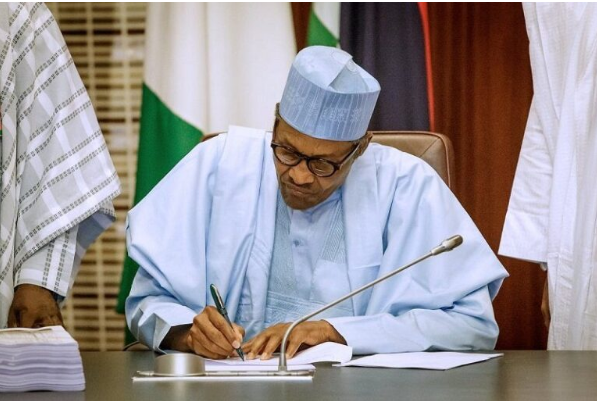Article summary
- Socio-Economic Rights and Accountability Project (SERAP) criticizes Nigerian government’s justification for seeking an $800 million loan for cash transfers after fuel subsidy removal.
- SERAP appeals to the World Bank to halt the loan issuance and reopen discussions with the incoming administration to clarify the loan’s purpose and use.
- Transparency and accountability concerns raised by SERAP regarding the loan request, urging the World Bank to address these issues and consider alternatives proposed by stakeholders, such as investing in local refineries and the National Gas Expansion Program.
Socio-Economic Rights and Accountability Project (SERAP) has said that the Buhari administration has no justification for seeking the $800 million loan it had planned for cash transfers following the removal of fuel subsidy.
SERAP made an appeal to the World Bank recently to put a stop to the issuance and reopen discussions with the incoming administration on the reasons and use of the $800 million loan.
Recall that Nairametrics had reported that President Buhari had written a letter to the Nigerian Senate seeking its approval for the $800 million World Bank loan which is meant to help cushion the effect of petrol subsidy removal on poor and vulnerable Nigerians. A part of President Buhari’s letter read:
- “I wish to invite the Senate to kindly approve an additional loan facility to the tune of $8OO million to be secured from the World Bank for the National Social Safety Net Programme, expressing hope that the request will receive expeditious consideration by the Senate.”
Buhari’s administration has less than 2 weeks to leave office
In its letter to the World Bank, SERAP had written:
- “SERAP is concerned that the government is seeking to spend the loan when it has barely two weeks to leave office and when the project objectives and intended purposes for which the loan is reportedly approved and will be disbursed remain unclear.
- “The government has not satisfactorily explained or justified the need for the loan at this time, especially given the lack of clarity on its use, the crippling debt burden, and the disproportionately negative impact of these retrogressive measures on poor Nigerians.”
What World Bank must consider
Also, SERAP raised transparency issues with the request and asked the World Bank to consider the transparency and accountability issues regarding the loan request. The letter also read:
- “The World Bank cannot close its eyes to these important transparency, accountability and human rights issues. The National Economic Council (NEC) on April 27 reportedly suspended the planned removal of subsidy on petroleum products by the end of the Buhari administration.
- “We would consider the option of pursuing legal action should the World Bank refuse to suspend the disbursement of the loan to the Federal Government and to implement the other recommendations contained in this letter, and we may join the government in any such suit.”
What you should know
Some stakeholders have provided alternatives to the $800 million disbursement to poor Nigerians following the fuel subsidy removal. Some of these include loan for the speedy repair of local refineries, the implementation of the National Gas Expansion Program (NGEP), which will see a mass conversion of Nigerian vehicles to run on natural gas as opposed to fuel.
The Independent Marketers Association of Nigeria (IPMAN) has already offered to place natural gas dispensers in 30,000 fuel stations across the country under the program. However, there has been no response from the federal government.





















They can approve it now and let the incoming administration disburse it.
This is a surprising stance by SERAP to oppose expanding the social safety net for low-income individuals and families across Nigerian, and instead favor channeling funds to private corporate actors for “investments in local refineries and the National Gas Expansion Program,” who arguably do not need concessionary finance to support their businesses. It seems rather inconsistent with their stated mission.
To SERAP’s credit they were one of the few civil society groups to raise concerns early on about the President and CBN’s misuse of Ways and Means spending and highlighted how these actions were a blatant violation of the CBN Act itself.
Dude, you seem to misunderstand the report, since it was NOT SERAP, but rather so-called “other stakeholders”, who are suggesting the use of the loan for other purposes such as repairing the GOVERNMENT-own local refineries and/or implementing the National Gas Expansion Program.
Nonetheless, the FG should use the trillions of Naira saved (approximately N6 trillion in 2023) by removing fuel subsidies to “expand the social safety net for low-income individuals and families across Nigerian (sic)” instead of borrowing yet money, when over 90% of revenue is currently dedicated to mere debt servicing.
____________________________
PS: Meanwhile, it is rather curious that the beneficiaries of the so-called “social safety net” (at least you didn’t insult our intelligence with the FG’s terminology of “social investment program”) who are purportedly being paid via digital wallets are pretty much the same rural Nigerians we were recently told lack bank accounts.
While I share concerns about the potential misappropriation of funds for social investment and expanding Nigeria’s social safety net, the solution lies in enhancing accountability, demanding transparency, and ensuring that these funds are properly distributed to the most vulnerable members of society. It is not wise to divert these funds into corporate hands to support yet another misguided industrial policy that seeks to consolidate the power and influence of the oil and gas industry in the corridors of power in Abuja.
On the refineries: Given Abuja’s proven incapability of managing the refineries for decades, it would probably be more sensible for the FG to sell its ownership of them, either completely or to a minority shareholding position.
On NGEP: I am also skeptical about the viability of the National Gas Expansion Plan due to its failure to consider the cost of converting vehicles from petrol or diesel to NGV (natural gas vehicles), which amounts to approximately US$6000 per vehicle. To convert Nigeria’s full fleet of auto vehicles this would take nearly $80bn in additional capital expenditure.
Additionally, the maintenance cost of natural gas-powered vehicles tends to be higher due to the limited availability of parts. With only around 28 million total NGVs worldwide compared to 14 million electric vehicles sold in the last two years alone, and nearly 1.1 billion conventional petrol / diesel vehicles in use today, investing in infrastructure to support electric vehicles might be a more cost-effective long-term option, considering that the cost curve is trending towards their viability. NGVs as a technology increasingly seems to be a technology that will quickly become obsolete globally.